Search Results
Search
Filter results
Advanced Filters
Your search returned 77 Solutions
-
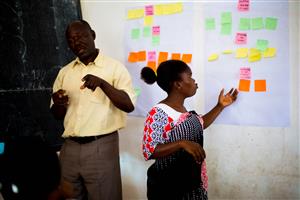
Training and online job-matching for students and graduates with disabilities
Since 2016, EmployAble Africa has been focusing on data and technology. There are online and mobile learning programmes for students and teachers, support for companies, and a job platform that works with trend analyses and auto-matching. In 2019, 560 persons were trained and 290 were placed.
Employable Africa, Envision Africa, Tanzania -
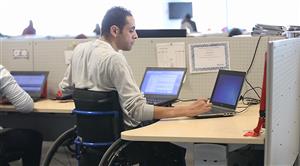
Large-scale support for employers who have to meet a quota of employees with disabilities
Helm assists employers by short-listing suitable candidates, identifying the required accommodations and ensuring that employees maintain their jobs by on-the-job training and regular follow-up with both the employee and employer. Between 2014 and 2017 Helm has worked with more than 250 companies.
Helm, Egypt -
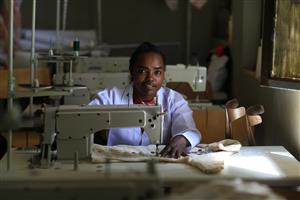
National guideline to make vocational training centres fully accessible
Published in 2019, the guideline is the first document in Ethiopia to set out measures for the equal participation of people with disabilities in "technical and vocational education and training" (TVET). By 2020, more than 30 government institutions have implemented the directive.
Ethiopian Federal TVET Agency, Guideline for inclusion of people with disabilities, Ethiopia -
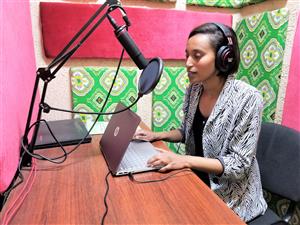
Mobile phone-based information service for disability-related topics
Minch was launched in 2021 by the Ethiopian Center for Disability and Development. The interactive voice-response phone platform provides toll-free audio information or text messages on disability-related topics in the Ethiopian national language. Minch works via cell phone and without the need for an Internet connection.
ECDD - Ethiopian Center for Disability and Development, Minch, Ethiopia -
Large-scale access to health services in a low-income country
MoveAbility initiated a project in Togo by working with a national school and a service provider to strengthen rehabilitation services. The coursework includes management and leadership training, the introduction of standardized operational procedures and protocols, and financial sustainability planning.
ICRC - International Committee of the Red Cross, MoveAbility Foundation, Togo -
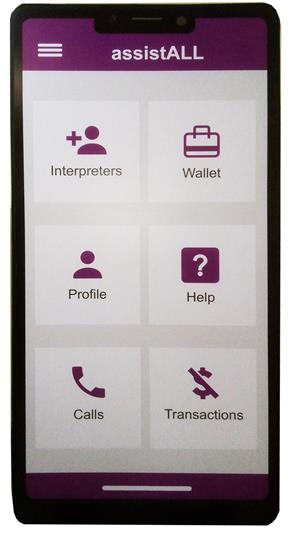
Sign language translation app for accessing services and businesses
Signs Media Kenya is dedicated to education, information, and entertainment in sign language. The social enterprise operates a news channel and has developed ‘2022 assistAll – an app that provides on-demand, 24/7 interpretation services and is available in English as well as Saheli.
Signs Media Kenya Limited, assistALL, Kenya -
Inclusive Education policy in Namibia
The policy defines eight guiding principles for inclusive education. Amon them are awareness raising, financial support or training for teachers and support staff as well as a curricular review to reflect the diversity of needs of all learners and a mechanism for monitoring and evaluating the implementation of the policy.
Namibian Ministry of Arts, Education and Culture, Sector Policy on Inclusive Education, Namibia -
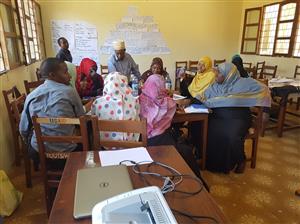
Inclusive Education teacher-training modules in university courses
Teacher training in Inclusive Education for pre-service teachers is an addition to the standard university course offerings and is free of charge. Seven training modules were developed, including a train-the-trainer model. The training is then followed by practical experience and actual implementation in selected schools.
State University of Zanzibar, Teacher Training in Inclusive Education, Tanzania -
OBLIGATORY ACCESSIBILITY STANDARDS
Uganda is among the first sub-Saharan countries to have developed their own accessibility standards. Uganda’s standards are mandatory for school construction projects and other public facilities. Also a National Accessibility Audit Committee and several District Accessibility Audit Committees were set up.
Ugandan Ministry of Gender Labour and Social Development, Uganda makes accessibility standards mandatory, Uganda -
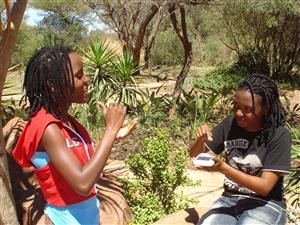
Affordable Hearing Aids through Solar Technology
Solar Ear manufactures low-cost, environmentally-friendly hearing aids and solar-rechargeable batteries. The company employs and trains people who are deaf to manufacture the hearing aids and to lead the replication of the technology. The company also runs a holistic hearing-loss detection and education programme.
Solar Ear, Botswana